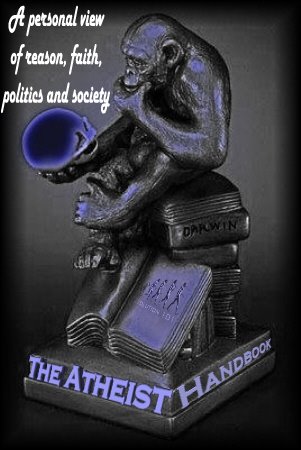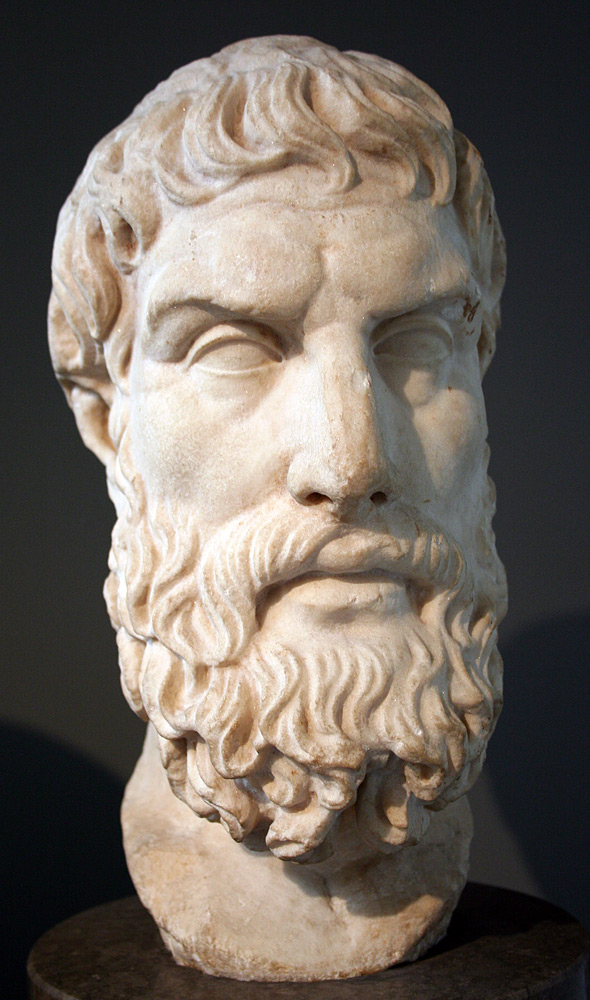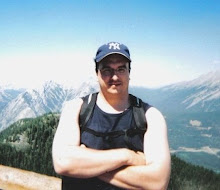
On Nov. 25 in Fonthill's St. Alexander's Church I debated Catholic Brock University professor David Goicoeecha on the existence, nature and meaning of the afterlife. We were very fortunate to have Justin Trottier from the Centre for Inquiry moderating the debate and he did an excellent job. It was a lively event, and fairly well attended. I will post my own recap later, but if you want an overview of the night check out Justin's blog here: http://www.equalismactivism.com/?p=2151
In Part 1, I posted my opening remarks. Part 2 are David's opening remarks. The following is my written notes regarding my first rebuttal...although I went well off script in some places in order to make my point and same time:
----
Evidence matters. Facts matter. They matter in nearly every important aspect of our lives. They matter in your finances and your job. They matter when it comes to the reliability of the brakes on your car. They certainly matter in our justice system and in how medicine is practiced. Consider, if the recent H1N1 flu vaccine was never tested in a lab, but was say, akin to homeopathy? A meaningless, untested, cure-all that the user has to have faith in?
I point this out because there is a curious thread running through David’s commentary. He talks a great deal about love and hope and, ultimately his preferences. He makes statements of belief based on how they make him feel. What we ought to believe appears to be judged on what makes us feel better.
But not only would I contend he is simply incorrect on many of these points, but they strike me as wish thinking, choosing to believe what is comforting, rather than what is true.
Consider for instance, his quoting the present Pope as the laboratory having “no hope.” The lab has nothing to believe in, he contends. No promise of immortality, or seeing dead loved ones or , ultimately, no talk of gods.
We are told that hope only lies in the last living institution of the ancient Roman Empire and its dogmas and doctrines of the afterlife. Such a view undervalues exactly what the laboratory has done for human kind.
A short overview of the history of science shows that work done in the lab has cured diseases and wiped out small pox and polio. It has created crops that can feed millions that would otherwise go hungry, produced the information age, put a man on the moon, and extended our sight to see the smallest bits of matter to the farthest reaches of space, into the deep past and put us on the doorstep of the origin of the universe itself. Show me a single Catholic belief that has done any of that. For all the Church’s sometimes impressive efforts at social justice, it has never and indeed cannot, match the accomplishments of science to better the human condition and relieve suffering.

Nothing to hope for? Really? Consider for instance David’s claim that the church is what gives humanity as sense of connection. We are, as he puts it, all part of the body of Christ. Of course, the implication here is that without this “body” we lose this connection with other creatures.
This is patently, and demonstrably, untrue. One of the most important conclusions that is drawn from the study of biology is the profound interconnectedness of all living things. Our species, like all others, is here as a result of a long and slow evolutionary process. All life is shaped by it. And we, as a species, are descended from others. We were not placed here specially by some divine hand. Rather we are the same as every other living creature.
What this means is that all the things we used to identify an us from a them – language, culture, clothing, or skin tone – are ultimately meaningless. We can trace our evolutionary lineage back to a point where such distinctions vanish and, as the author Nino Ricci points out, all that is left is a single human species.
Combined with the results of work in astronomy which shows us that, on a cosmic scale, were are not even close to being the focal point of the universe and that if our planet vanished tomorrow the cosmos would keep doing what it is doing just fine. We have no privileged place on this planet or the universe at large. As Carl Sagan so clearly points out in Pale Blue Dot, Earth is the only home we have, be it though a dot in the universal scheme of things, and we are stuck with each other. We are connected, by biology and cosmology to our planet and to ourselves. One need only see the photo of earth taken by NASA space probes that are now beyond our solar system to have this point driven home.
No religion is capable of demonstrating this undeniable fact, for no religion is capable of mustering the evidence to demonstrate its truth.
Consider also the statements made by Ratzinger in the quotes David provides. The pope says things like: “In death a human being emerges into the light of full reality and truth. He takes up that place which is truly his by right.”
Really? By what means does Ratzinger claim to know this? His personal view of the bible? Catholic tradition? Personal revelation? All of these are insufficient, and lack the weight of any substantial evidence. And, in case, Ratzinger is unable to show us why we should take his word for any of it, over say the word of a Muslim cleric or the Dali Lama. The metaphysical claims of these religions are mutually exclusive. By what means does David and his pope suggest we know that their claims are true?
There is, of course, the weight of history to be considered before one can even approach a discussion of the afterlife. Historians have long been aware of the historical unreliability of the bible and, like Socrates, we cannot eve be certain Jesus existed as a flesh and blood person.
If he did exist, he wrote nothing himself. His biographers, writing long after the events in question, got elementary pieces of history wrong, including the historical events that are supposed to give some historicity to the birth of Jesus. As Christopher Hitchens explains, “The Gospel according to Luke states that the miraculous birth occurred in a year when the Emperor Caesar Augustus ordered a census for the purposes of taxation, and that this happened at a time when Herod reigned in Judaea and Quirinius was governer of Syria. That is the closest to a triangulation of historical dating that any writer even attempts. But Herod died four years "BC" and during his rulership the governor of Syria was not Quirinius. There is no mention of any Augustan census by any Roman historian, but the Jewish chronicler Josephus mentions one that did occur- without the onerous requirement for people to return to their places of birth, and six years after the birth of Jesus is supposed to have taken place.”
The works in the New Testament written closest to the time Jesus is alleged to have live, the work of St. Paul, are not even eye witness accounts and curiously the biographical details of Jesus’ life are of little interest to him. His focus is entirely on the death, resurrection and ascension of Jesus. Whether Jesus was born of a virgin, or raised a dead man, or walked on water – all noteworthy events one would think – are of little concern to St. Paul.
Even pagan writers, at the dawn of the Christian era, found something a little odd about the Biblical story. Well they should have. They had heard it all before. Virgin births, resurrections, miracles, and everlasting life after death were common place stories in a society drenched with a rich mythology stretching back before the stories of Homer. In fact, early church fathers, like Justin Martyr, could not pretend the similarities did not exist. He explicated stated in his famous “first apology” about the Jesus story that “When we say that Jesus Christ was produced without sexual union, was crucified and died, and rose again, and ascended to heaven, we propound nothing new or different from what you believe regarding those whom you call the sons of Jupiter.”
Thomas Paine, the great enlightenment thinker and father of the American and French revolutions, dismissed the Christian story on the grounds that it was, essentially, a plagiarism . In the “Age of Reason” he wrote:
It is curious to observe how the theory of what is called the Christian Church, sprung out of the tail of the heathen mythology. A direct incorporation took place in the first instance, by making the reputed founder to be celestially begotten. The trinity of gods that then followed was no other than a reduction of the former plurality, which was about twenty or thirty thousand. The statue of Mary succeeded the statue of Diana of Ephesus. The deification of heroes changed into the canonization of saints. The Mythologists had gods for everything; the Christian Mythologists had saints for everything. The church became as crowded with the one, as the pantheon had been with the other; and Rome was the place of both. The Christian theory is little else than the idolatry of the ancient mythologists, accommodated to the purposes of power and revenue; and it yet remains to reason and philosophy to abolish the amphibious fraud.
Harsh words, perhaps, but their direct tone does not undermine their accuracy and lead to accusations that Paine – a deist – was in fact an atheist, a seriously damaging and pejorative term in the 19th century, and indeed in some circles today.
So we have little reason to accept the life of Jesus as played out in the bible as accurate. Why then would we accept claims of an afterlife?
It is also worth noting, before we move on, that David has claimed the catholic church proclaims there is no hell. This is a staggering claim to make, given the contents of Catholic theology and the statements of the present pope, whom David quotes so extensively. Indeed, it is important to note that the Jewish texts, from which Christianity springs, does not have a hell that is a place of torment. It is only from Jesus, the “meek and mild” that we learn of the concept of a place where one is tortured forever for failing to obey and love god properly.
Though an immoral and ridiculous concept, we must note that Christians views of hell are not uniform. The are as many version of hell as there are sects of Christianity. By what evidence do we accept one sects claims over the others? The Catholics can no more demonstrate their version of the afterlife is any more accurate than any Protestant view of it.
But while what hell is or how one gets there might vary from sect to sect, it is nevertheless a binding common feature of all forms of Christianity that is that hell is real and where those who do not meet the conditions of heaven are sent. The present pope, as I already mentioned, could not have made his views clearer on the subject – hell is real, its just not fashionable to talk about it.
Finally, I will make what I hope will put this line of discussion to bed. The recruitment by David, and other Catholics, of Fredrick Nietzsche to their cause. David contends that Nietzsche was some type of follower of Jesus, if not a Christian altogether. This is false. Nietzsche was a strident atheist and the best thing he could say about Jesus was the man lived, if he lived at all, exactly as he preached. This is why Nietzsche declared there was only one Christian, and that guy was executed on the cross. He found Jesus’s morality to be naïve, and thus declared him an idiot and the religion that worships him a blight. As anyone familiar with the body of Nietzsche work knows (quote mining the man is simply to ignore the breathe of his philosophical work) he did not hold up Jesus as the highest example of humanity. Rather he looked to the destruction of religion, the death of god, and the creation of new, life affirming morals and ethics by his “overman”, one that might look to the mythology of Dionysus, not the mythology of Jesus, as inspiration.
















No comments:
Post a Comment